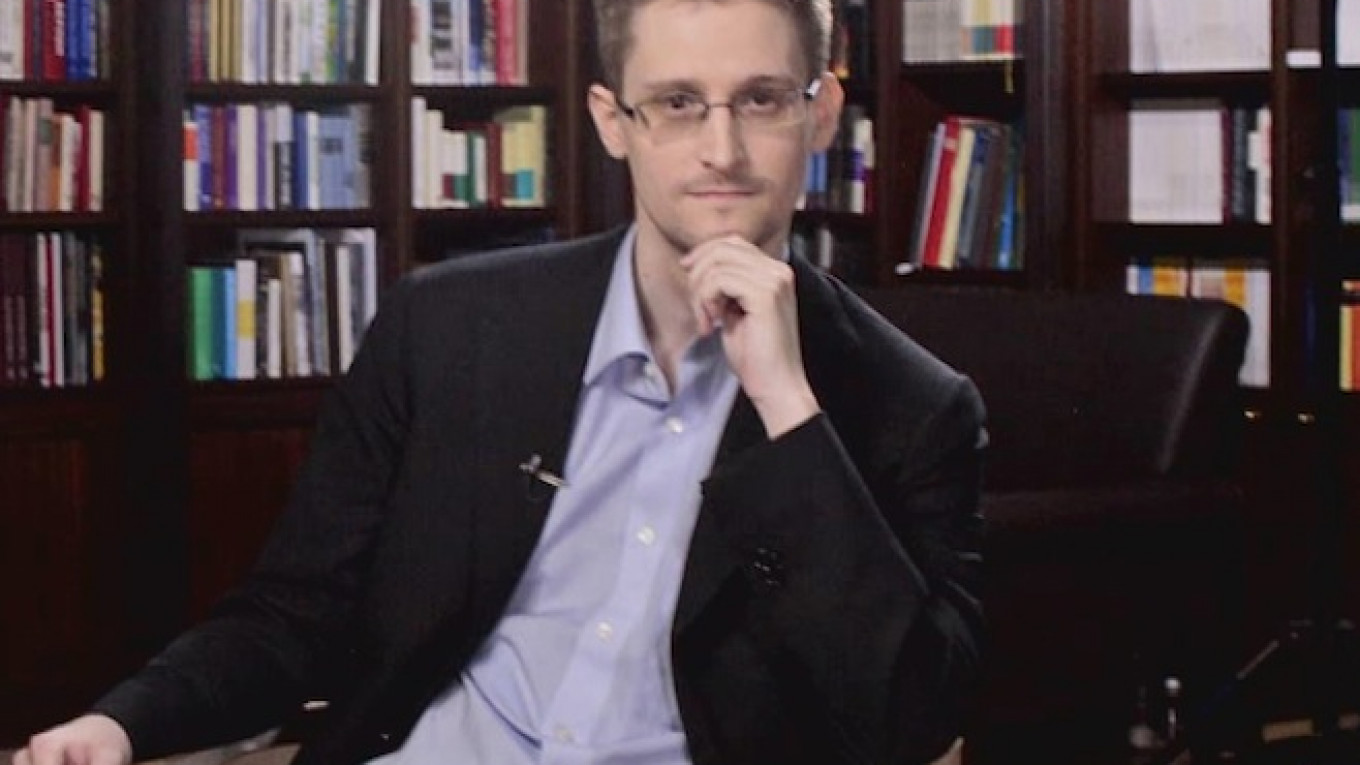U.S. intelligence leaker Edward Snowden said in a television interview that he "was trained as a spy" and had worked undercover overseas for U.S. government agencies.
In an advance excerpt of his interview in Moscow with U.S. show NBC Nightly News that aired Tuesday, Snowden rejected comments by critics that he was a low-level analyst.
"Well, it's no secret that the U.S. tends to get more and better intelligence out of computers nowadays than they do out of people," Snowden told NBC news anchor Brian Williams.
"I was trained as a spy in sort of the traditional sense of the word in that I lived and worked undercover overseas — pretending to work in a job that I'm not — and even being assigned a name that was not mine."
Describing himself as a "technical expert," Snowden said "I don't work with people. I don't recruit agents. What I do is I put systems to work for the U.S. And I've done that at all levels — from the bottom on the ground all the way to the top."
He said he worked undercover overseas for both the CIA and National Security Agency, or NSA, and lectured at the Joint Counterintelligence Training Academy "where I developed sources and methods for keeping our information and people secure in the most hostile and dangerous environments around the world."
"So when they [critics] say I'm a low-level systems administrator, that I don't know what I'm talking about, I'd say it's somewhat misleading," Snowden added.
Snowden, who fled to Hong Kong and then Moscow last year, is believed to have taken 1.7 million computerized documents. The leaked documents revealed massive programs run by the NSA that gathered information on e-mails, phone calls and Internet use by hundreds of millions of Americans.
He was charged last year in the U.S. government property, unauthorized communication of national defense information and willful communication of classified intelligence to an unauthorized person.
NBC is airing the full interview with Snowden on Wednesday night.
Inquiry
In a report published Tuesday, Snowden told a German magazine that he has new information to share with a German parliamentary inquiry investigating U.S. surveillance and that he believes all Germans' rights were violated.
German lawmakers on a committee investigating the spying decided earlier this month they wanted to question Snowden, but they could not agree on whether he should be invited to testify in person or remotely.
Snowden, who risks being arrested and extradited if he sets foot in any U.S.-allied country, told Stern magazine that he had been "personally involved with information stemming from Germany" and that in that process the "constitutional rights of every citizen in Germany were infringed".
He had used systems able to intercept large amounts of data, he said, adding: "I'd be surprised if German lawmakers learnt nothing new if I laid out all the information."
Snowden said Germany's foreign intelligence agency, the BND, had used the same methods as the Americans and that might be the reason why some in Berlin were reluctant to hear him.
An option would be for him to testify from abroad but the German opposition argues that Snowden can only express himself freely if he is in Germany. Snowden's German lawyer has ruled this out, saying it could jeopardize his stay in Russia.
Angela Merkel's conservatives have so far rejected quizzing Snowden in Berlin, fearing it could further damage relations with Washington that have suffered from the revelations that U.S. spies tapped the German chancellor's own phone.
See also:
A Message from The Moscow Times:
Dear readers,
We are facing unprecedented challenges. Russia's Prosecutor General's Office has designated The Moscow Times as an "undesirable" organization, criminalizing our work and putting our staff at risk of prosecution. This follows our earlier unjust labeling as a "foreign agent."
These actions are direct attempts to silence independent journalism in Russia. The authorities claim our work "discredits the decisions of the Russian leadership." We see things differently: we strive to provide accurate, unbiased reporting on Russia.
We, the journalists of The Moscow Times, refuse to be silenced. But to continue our work, we need your help.
Your support, no matter how small, makes a world of difference. If you can, please support us monthly starting from just $2. It's quick to set up, and every contribution makes a significant impact.
By supporting The Moscow Times, you're defending open, independent journalism in the face of repression. Thank you for standing with us.
Remind me later.






